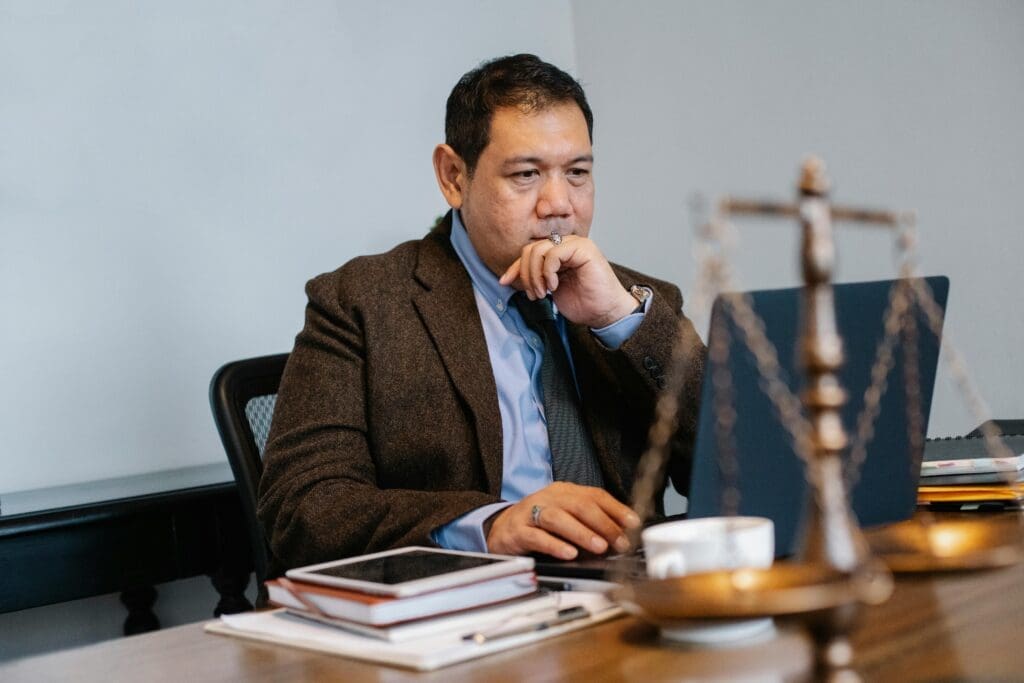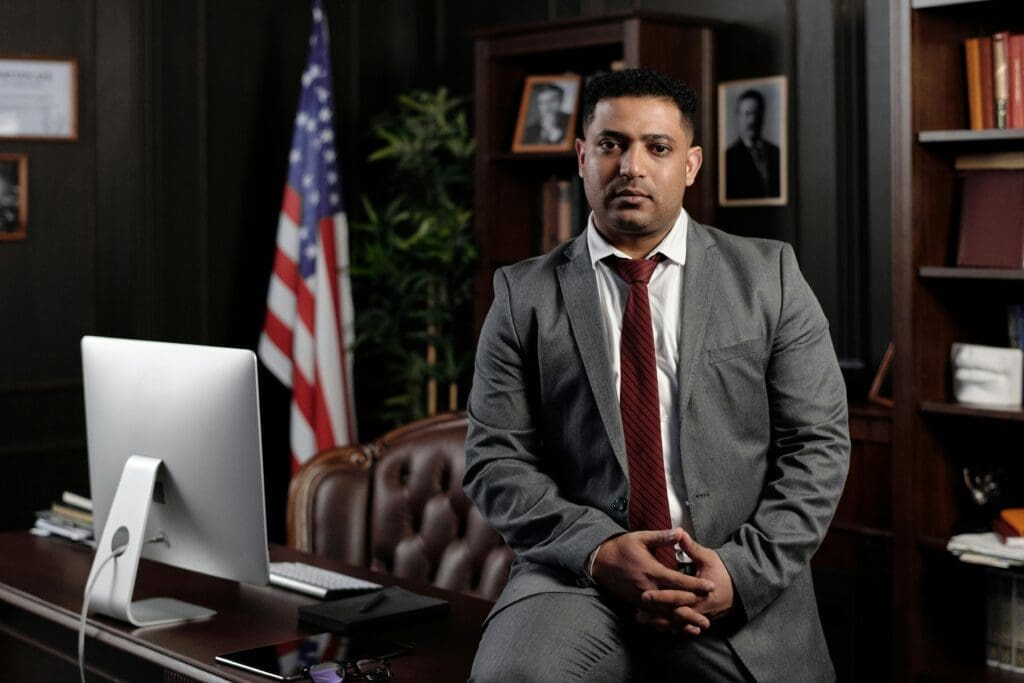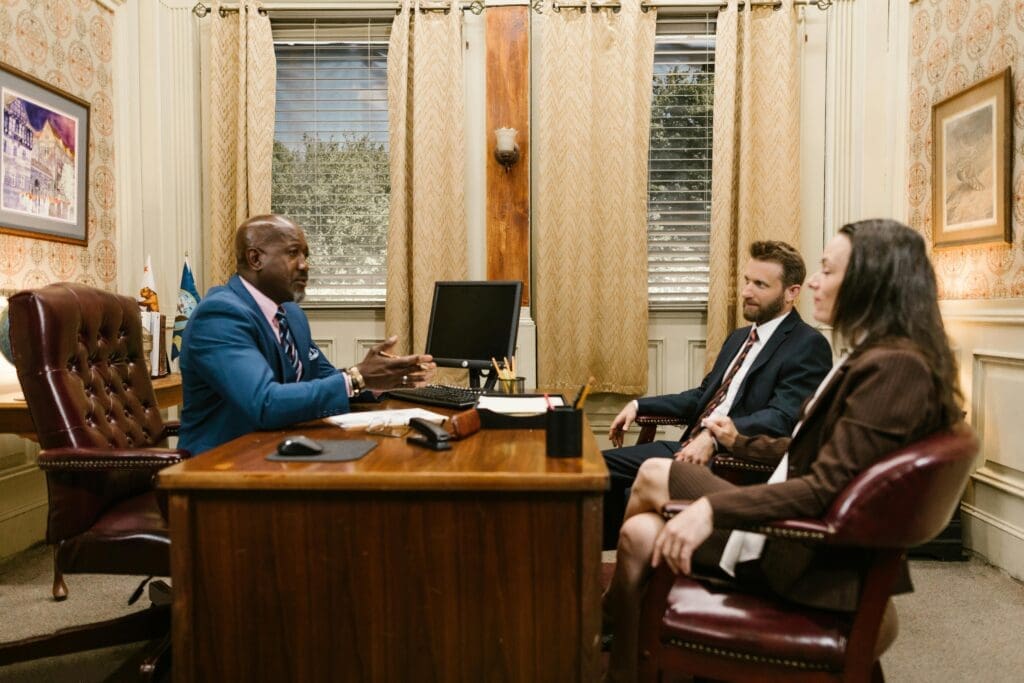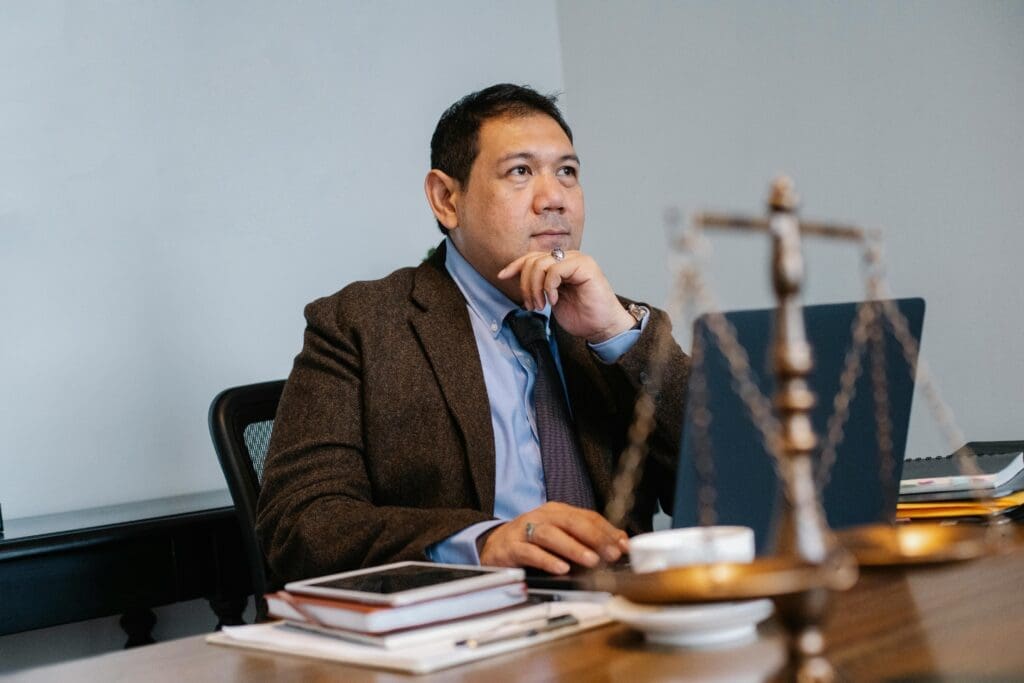Securing your will, trust, powers of attorney, and healthcare directives is just as important as drafting them. These documents guide your wishes and protect your legacy, but if they can’t be located when needed, their value drops quickly. As a Nevada estate planning attorney, I’ve seen firsthand how improper storage can cause unnecessary stress and complications for families.
Estate planning isn’t just about preparing for the unexpected—it’s about making sure others can act on your behalf without roadblocks. To help you avoid delays, court orders, or confusion, this article outlines practical strategies for storing your original estate planning documents in a way that aligns with Nevada law and real-world considerations.
Safe deposit boxes seem like a secure option—and in many ways, they are. They’re locked, managed by your bank, and resistant to natural disasters. But they also come with serious access restrictions that can pose problems if you become incapacitated or pass away.
If you're the only individual listed on the lease, your family may not be able to access the contents without a court order. Even if you've given someone access informally, that doesn’t carry the same legal weight as being a co-lessee. In Nevada, you can sometimes list your revocable living trust as a co-lessee to allow your successor trustee access, but this must be set up properly.
We often advise clients to avoid using a safe deposit box as their sole storage solution unless they’ve confirmed access protocols and documented them clearly. Your goal is to minimize delay—not create additional legal hurdles.
Many clients prefer to keep their estate documents close to home. A fireproof, waterproof, and securely bolted home safe can be an effective storage solution, especially if you live in Nevada where environmental factors like wildfire or flooding are risks.
If you choose this method, make sure the safe is not easily moved and that someone you trust has access to it. That could be a family member, your successor trustee, or another trusted advisor. What’s critical is ensuring the combination or key is retrievable if you’re no longer able to share it.
We recommend leaving clear, written instructions with someone you trust or storing a sealed copy of the combination in a separate safe location. Accessibility should never compromise security—but security shouldn’t block those you’ve chosen to carry out your plan.

If you’ve appointed a corporate trustee—such as a bank or professional trust company—they may offer storage services for your original estate planning documents. These organizations typically have secure facilities and procedures in place to protect sensitive legal materials.
While not every financial institution provides this service, it can be a reliable option if you’ve already integrated them into your estate plan. Nevada residents with complex estate structures, business interests, or multiple beneficiaries may find this route both practical and consistent with their long-term goals.
We often help clients confirm whether their selected corporate trustees offer secure document storage and ensure that necessary family members or advisors know how to retrieve those documents when needed.
Even the most secure plan can break down if no one knows where to look. Nevada law may presume documents were destroyed if originals cannot be found. This can result in your estate being distributed according to intestate succession laws—regardless of your written intentions.
Make sure your executor, trustee, or healthcare agent knows where the originals are stored and how to access them. It’s also wise to maintain a written inventory of your estate documents along with their storage locations. We regularly provide clients with document summaries to simplify this process.
Clear communication can prevent delays, reduce confusion, and give your loved ones the confidence to act when it matters most. It’s not just about what’s written in your estate plan—it’s about making sure the right people can carry it out.
Legal soundness means very little if no one can retrieve your documents quickly. Emergencies, illness, or sudden loss don’t happen on a convenient schedule. Your storage strategy should balance security with accessibility and be revisited as your plan evolves.
We routinely walk clients through the trade-offs of each storage method and tailor recommendations based on family dynamics, assets, and preferences. The right choice for you depends on how much control you want to retain, who you trust, and how your estate plan is structured.
Nevada estate planning isn’t just about documents—it’s about preparing the people you’ve chosen to act on your behalf. That preparation includes legal guidance, document creation, and storage strategy.
By working with a local Nevada estate planning attorney like those at Anderson, Dorn & Rader, you can put safeguards in place that protect your wishes and provide clarity when your loved ones need it most. We offer clients guidance from start to finish—from drafting to execution to proper storage—so your estate plan remains functional and respected.
Estate planning is more than just deciding who will inherit your assets. It is an opportunity to shape the legacy you leave behind, ensuring that your values, life lessons, and aspirations are passed down to future generations. By working with a Nevada estate planning attorney, you can create a plan that not only manages your assets but also preserves the intangible elements of your life’s journey. Addressing key legacy questions now will provide clarity and direction for your loved ones, helping them navigate the future with confidence and purpose.
Working with a meaningful Nevada estate planning attorney goes beyond financial matters. It should also reflect the values and principles that have guided your life. Identifying these core values can help ensure that they continue to influence future generations.
Consider the personal philosophies that have shaped your decisions. Whether it’s a strong work ethic, a commitment to education, or the importance of giving back to the community, these principles can be documented in a written letter or a recorded message. Sharing these values provides your heirs with guidance and a sense of continuity, even after you are gone.
Additionally, life lessons gained from personal experiences can serve as invaluable wisdom for your family. Reflecting on the challenges you have overcome and the knowledge you have gained allows you to pass on insights that may help your loved ones navigate their own journeys.
Successes and regrets both shape the story of a person’s life. Documenting major accomplishments offers inspiration for future generations, demonstrating perseverance and dedication. Whether it’s a thriving business, a strong family foundation, or personal achievements, these successes provide valuable lessons on determination and resilience.
Just as important as sharing successes is acknowledging regrets. Lessons learned from challenges and setbacks can offer guidance to those who follow in your footsteps. By openly discussing what you might have done differently, you can provide your heirs with the tools to avoid similar pitfalls and make informed decisions in their own lives.
 Defining Desired Remembrances
Defining Desired RemembrancesHow do you want to be remembered? This question is fundamental to estate planning. Beyond financial legacies, consider the traditions, rituals, and personal stories that you want to pass down. These elements contribute to the emotional and cultural heritage of your family.
Whether it is an annual family gathering, a commitment to charitable causes, or a passion for a particular hobby, incorporating these traditions into your estate plan helps keep your memory alive. Personal letters, recorded messages, or designated gifts can ensure that your legacy continues beyond legal documents.
A well-structured estate plan should outline not only how your assets will be distributed but also how they can positively impact your beneficiaries’ futures. Thoughtful planning can ensure that your legacy supports their long-term growth and well-being.
For example, setting up educational funds can help future generations pursue higher education without financial burden. Charitable donations in your name can continue supporting causes you cared about. Establishing trusts with specific guidelines can provide structure for beneficiaries while protecting assets from potential financial mismanagement.
Additionally, preparing for future medical and financial contingencies is crucial. A Nevada estate planning attorney can help create advance directives, medical powers of attorney, and financial management plans to ensure that your wishes are honored should you become unable to communicate them yourself.
Estate planning is a process that requires careful thought and professional guidance. Taking the time to answer these important legacy questions ensures that your estate plan reflects not only your financial priorities but also the values and aspirations you wish to pass on.
Assess your current estate plan and determine whether it fully captures your legacy. If you haven’t started yet, consulting with an experienced Nevada estate planning attorney is a crucial step in creating a plan tailored to your specific needs and goals.
At Anderson, Dorn & Rader Ltd., our attorneys help clients craft comprehensive estate plans that protect both their assets and their legacies. Contact us today to schedule a consultation and begin shaping the future you envision for your loved ones.
Nevada estate planning is often associated with financial assets, but true legacy extends beyond wealth. In Nevada, estate planning offers a unique opportunity to pass down values, traditions, and life lessons alongside financial security. Families can strengthen connections and ensure that future generations inherit not just money, but also meaningful personal history and guiding principles.
Estate planning professionals help individuals integrate their values into legally sound plans, ensuring that family stories, philanthropic interests, and personal philosophies endure for generations.
Well-crafted Nevada estate planning reflects more than asset distribution; it embodies a person’s values and legacy. In Nevada, incorporating family traditions, ethical principles, and life lessons into a Nevada estate plan allows individuals to influence future generations in profound ways.
 Methods for Communicating Values
Methods for Communicating ValuesModern Nevada estate planning tools make it easier than ever to preserve and protect family stories and traditions for future generations.
Aligning financial planning with personal values creates a more meaningful legacy. Trusts offer a structured way to support family members while reinforcing specific principles.
Nevada’s legal landscape presents distinct advantages for estate planning. Understanding these aspects ensures a smooth, legally sound process for passing down assets and values.
Estate planning in Nevada provides an opportunity to leave behind more than financial assets. Thoughtful planning ensures that values, traditions, and personal philosophies continue to guide future generations.
Working with an experienced estate planning attorney simplifies this process. Anderson, Dorn & Rader Ltd. helps clients structure their estate plans to include personal legacies, ensuring a meaningful transfer of wealth and wisdom.
A well-designed estate plan is more than a financial document—it is a roadmap for the future, ensuring that your values endure for generations to come.
Estate planning is more than just determining who will inherit your assets. It is an opportunity to pass down values, life lessons, and cherished family history. Having a conversation with loved ones about Nevada estate planning ensures that your intentions are clear, reducing confusion and potential disputes in the future. In Nevada, estate planning involves not only distributing wealth but also leaving behind a meaningful legacy.
A well-structured estate plan communicates your wishes and prepares your family for what lies ahead. By discussing these five key topics, you can make the transition as seamless as possible and create a plan that truly reflects who you are.
Your life experiences, challenges, and accomplishments define who you are. Unfortunately, many family stories fade over time, leaving future generations without a full picture of their history. Taking the time to document or share your personal narrative ensures that your legacy lives on beyond financial assets.
Consider creating a video, audio recording, or written memoir to capture key moments in your life. Encourage family members to ask questions about your past, from childhood memories to career highlights. This can be an enlightening experience, allowing loved ones to gain insight into what shaped your values and decisions.
Beyond storytelling, Nevada estate planning documents can incorporate your principles and personal mission. Trusts and wills can be structured to reflect charitable giving, educational funding, or other ways to leave an impact that aligns with your core beliefs.
One of the most significant aspects of Nevada estate planning is ensuring your wishes are honored. This includes decisions about asset distribution, financial management, and medical directives. While legal documents like wills, trusts, and powers of attorney outline these details, a direct conversation with family members can provide essential clarity.
Explaining why certain decisions were made reduces misunderstandings and potential disputes. For example, if one beneficiary is receiving a specific asset due to sentimental value rather than equal monetary distribution, discussing this in advance can prevent future tensions.
Medical and financial powers of attorney should also be addressed. Let your family know who will be responsible for making decisions on your behalf if you are unable to do so. Transparency in these matters provides peace of mind and allows your family to confidently uphold your wishes.

A family meeting is an excellent opportunity to explore your lineage and heritage. Understanding family history connects younger generations to their roots, fostering a sense of belonging and identity.
Consider compiling a family tree that documents names, birthplaces, and significant life events. Digital platforms allow you to create interactive genealogical records that can be shared and expanded upon by future generations. Additionally, heirlooms, photographs, and written anecdotes add depth to family history, making it more meaningful.
Having these discussions also helps clarify the distribution of sentimental items within an estate plan. By documenting family lineage and history, you provide a lasting gift that extends beyond financial inheritance.
Physical objects often hold deep sentimental value. Whether it’s a piece of jewelry, an antique, or a family home, these items carry personal and historical significance. Without context, however, heirs may not understand the importance of these possessions.
As part of estate planning, take the time to document the history of key heirlooms. Explain why certain items are meaningful and who should inherit them. Recording these stories in writing or video ensures that their legacy continues.
Additionally, discussing heirlooms with family members can prevent conflicts over personal property. If multiple relatives express interest in the same item, having a conversation early on can lead to an amicable solution.
Estate planning is not just about passing down wealth; it is about passing down values. Structuring your estate plan to reflect your beliefs allows future generations to benefit from your wisdom.
Consider incorporating trusts that align with your values. Educational trusts can provide funding for continued learning, while charitable trusts support causes that are important to you. Incentive trusts can encourage responsible financial behavior by setting guidelines for asset distribution.
By designing an estate plan that prioritizes your principles, you ensure that your legacy extends beyond material wealth and leaves a lasting impact on your family and community.
Having these conversations with family members provides clarity and reduces uncertainty. Nevada estate planning is most effective when it aligns with both your financial goals and personal values.
The attorneys at Anderson, Dorn & Rader Ltd. specialize in crafting customized estate plans that reflect each client’s unique legacy. Whether you need assistance with trusts, wills, or tax strategies, their team ensures that your estate plan is structured to honor your wishes.
Initiating a family meeting about Nevada estate planning is an important step in preserving your legacy. If you need expert guidance in developing a plan that accurately represents your values and wishes, Anderson, Dorn & Rader Ltd. in Reno is ready to assist. Contact their office today to schedule a consultation and begin the process of securing your estate for future generations.
Michael Jackson’s estate remains in legal limbo more than 15 years after his passing. Despite having a will and trust, the estate has faced ongoing tax disputes, legal battles, and family conflicts. The recent $600 million sale of Jackson’s music catalog to Sony further highlights the complexities of estate planning, particularly when large assets and multiple heirs are involved.
This case underscores why individuals—whether high-net-worth or middle-income—need a well-structured estate plan that accounts for probate, trust funding, and executor responsibilities. Working with a Nevada estate planning attorney can prevent many of the complications seen in high-profile estates like Jackson’s.
Even with a valid will and trust, Jackson’s estate remains unsettled, largely due to tax disputes with the IRS and ongoing legal challenges. The probate process has kept many of his assets tied up for over a decade, leaving his heirs without full control over their inheritance.
Proper estate planning minimizes delays, protects beneficiaries, and keeps financial matters private. Without a Nevada estate planning attorney, even well-drafted wills and trusts can lead to prolonged legal battles.
Jackson’s estate has been managed by professional executors, rather than family members, which has helped maximize the value of his assets. However, disputes still arose when his mother objected to the Sony deal, arguing that it went against Jackson’s wishes.
Having an estate plan is not enough—it must include clear guidance on who manages assets, how decisions are made, and what authority executors have to prevent family disputes.

While Jackson had a revocable trust, not all of his assets were transferred into it during his lifetime. This created unnecessary probate involvement and legal disputes that could have been avoided.
For individuals with real estate, business assets, or intellectual property, a comprehensive trust strategy is essential to preserving their legacy.
Jackson’s estate plan included structured distributions for his children, ensuring they would receive their inheritance at staggered ages rather than in a lump sum. This kind of planning is crucial for protecting young heirs from financial mismanagement and external threats.
Individuals of all income levels benefit from structured estate plans that protect their families from unnecessary legal complications and financial risks.
Michael Jackson’s estate serves as a cautionary tale about the potential pitfalls of estate administration. While his estate was complex, many of the challenges it faced—probate delays, family disputes, and tax liabilities—are common in estate planning.
A Nevada estate planning attorney can help individuals avoid similar complications by:
Proper estate planning provides peace of mind, allowing individuals to focus on their families while ensuring their wishes are carried out efficiently and privately.
High-profile cases like Michael Jackson’s estate demonstrate the importance of proactive estate planning. Whether someone has extensive assets or simply wants to protect their family from probate delays, working with a Nevada estate planning attorney is essential.
Anderson, Dorn & Rader Ltd. provides expert guidance for individuals looking to create a comprehensive estate plan tailored to their needs. With proper planning, families can avoid legal disputes, protect their wealth, and ensure their wishes are respected.
Life insurance is often considered a cornerstone of estate planning. It provides immediate liquidity for beneficiaries through tax-free lump-sum payments, covering final expenses, replacing lost income, and funding trusts. While essential, life insurance has limitations. Relying solely on it in your Nevada estate plan can leave gaps, creating unforeseen challenges for loved ones.
Effective estate planning requires a holistic approach. Life insurance is just one tool in a broader strategy designed to protect your legacy and provide for your beneficiaries. Anderson, Dorn & Rader Ltd. specializes in creating comprehensive estate plans that integrate life insurance with other critical elements, ensuring that your goals are met and potential risks are mitigated.
Life insurance policies, while flexible, are not without constraints. Terms and exclusions in policies can leave beneficiaries without the expected financial support. For example, term life insurance only provides coverage within a specific timeframe, and employer-provided life insurance often ends when employment ceases. Additionally, exclusions for high-risk activities or incomplete applications can nullify coverage.
Understanding these limitations is critical. Policyholders must regularly review their policies to ensure that coverage aligns with their current needs and life circumstances. Failure to address these risks may result in unintended outcomes, such as delays in payouts or no payout at all.
Integrating life insurance into a comprehensive estate plan is key to maximizing its benefits. While life insurance provides liquidity, it should work in tandem with tools like wills and trusts to avoid probate complications and minimize tax burdens.
A Nevada estate plan that includes life insurance can address various financial needs, from covering estate taxes to equalizing inheritances. For instance, life insurance proceeds can ensure a fair division of assets when property or other investments are difficult to split among heirs. By pairing life insurance with other estate planning tools, families gain financial stability and peace of mind.

Naming beneficiaries on a life insurance policy might seem straightforward, but improper designations can lead to legal challenges. Failure to name primary and contingent beneficiaries may result in the death benefit going to the estate, subjecting it to probate.
Additionally, naming minor children or individuals who lack mental capacity as beneficiaries can complicate the distribution process. Establishing a trust as a beneficiary allows the policyholder to control how the proceeds are managed, ensuring they are used as intended for education, living expenses, or other priorities.
An estate planning attorney can ensure that life insurance aligns with your broader financial goals. Whether it’s funding a trust, paying estate taxes, or supporting a surviving spouse, integrating life insurance into a comprehensive strategy provides clarity and protection.
Anderson, Dorn & Rader Ltd. works closely with clients to evaluate their life insurance policies, identify potential gaps, and create estate plans that address both short-term needs and long-term goals. With professional guidance, you can ensure that your loved ones are financially secure and that your estate reflects your wishes.
Estate planning is about more than purchasing a life insurance policy—it’s about creating a roadmap for the future. Contact Anderson, Dorn & Rader Ltd. today to schedule a consultation. Their experienced team specializes in Nevada estate planning, helping families protect their assets, reduce tax liabilities, and secure their legacy for generations to come.
Planning for your child's future is an important part of Nevada estate planning. Anderson, Dorn & Rader Ltd. understands that choosing the right individuals to care for your child and manage their financial assets requires careful thought. Deciding whether the same person should serve as both the guardian and the trustee is one of the most significant decisions parents must make. This article explores the roles, benefits, and challenges to help you make an informed choice that aligns with your family’s needs.
A guardian takes on the responsibility of raising your child if you are no longer able to do so. This includes making decisions about their education, healthcare, and emotional well-being. A trustee, on the other hand, manages any financial assets or inheritance left for your child, ensuring those resources are used wisely for their benefit.
Both roles are essential, but they require different skill sets. While a guardian focuses on providing emotional and physical care, a trustee must have the ability to manage finances responsibly. Anderson, Dorn & Rader Ltd. can help parents evaluate potential candidates to ensure each role is filled by the right person.
There are situations where appointing the same person as both guardian and trustee can simplify the process. This approach streamlines decision-making by ensuring consistency between your child's care and financial management. For example, the same individual can make informed choices about education or healthcare costs without needing approval from a separate trustee.
Choosing one person to serve in both roles can also prevent disagreements between the guardian and trustee, fostering a unified approach to your child’s upbringing and financial planning. This solution works well when you have complete trust in an individual’s ability to manage both responsibilities.

Despite the advantages, assigning both roles to one person may also present challenges. Managing a child’s emotional needs while handling their financial affairs can be overwhelming for a single individual. Even a well-intentioned guardian may struggle to keep up with budgeting, investments, or legal responsibilities without prior experience in financial management.
Another risk is the possibility of conflicts of interest. A guardian might unintentionally use the child’s assets for purposes that do not align with the original financial plan. Anderson, Dorn & Rader Ltd. advises parents to carefully consider these potential challenges before deciding.
Appointing different individuals as guardian and trustee can provide important checks and balances. The trustee focuses solely on managing finances, ensuring that funds are preserved and used appropriately over time. Meanwhile, the guardian can dedicate their attention to your child’s well-being without the added pressure of financial responsibilities.
By separating the roles, families reduce the risk of conflicts and ensure that each individual is best suited to their specific responsibilities. Anderson, Dorn & Rader Ltd. recommends this approach for parents who want to create a balanced structure of care and financial management.
When it comes to securing your child’s future, there is no one-size-fits-all solution. The decision to assign the same person as both guardian and trustee—or to split the roles—depends on your family’s unique circumstances. Anderson, Dorn & Rader Ltd. can help you evaluate the pros and cons of each option to design an estate plan that provides emotional stability and financial security for your child.
When planning for the future, few topics are more important than the care of your children and the protection of your assets. If something unexpected happens, ensuring your children are raised by someone you trust is essential. At Anderson, Dorn & Rader Ltd. in Reno, we understand the complexity of these decisions. One critical step is naming a guardian for your minor children and ensuring a sound financial plan that includes leaving an inheritance to grandchildren.
This article explores the importance of naming a guardian and trustee, financial planning for children’s future needs, and strategies to ensure that your legacy benefits your grandchildren.
In Nevada, if you don’t name a guardian, the court will make this decision for you, which may lead to unwanted outcomes. Judges are required to consider the child's best interests, but they do not know your personal values, preferences, or relationships. There is a risk that your children could end up with a relative you don't approve of or, in some cases, a stranger.
By naming a guardian, you gain control over who will raise your children and ensure their upbringing aligns with your values and vision for their future. Your selected guardian will step in to provide emotional support and continuity during a challenging time, following your wishes regarding their education, well-being, and daily life. This peace of mind can be invaluable for parents thinking long-term.
Selecting a guardian requires careful thought. Factors such as the relationship between the potential guardian and your children, their parenting style, and shared values are essential considerations. Stability is also crucial—how familiar your children are with the person, whether they live nearby, and if they can maintain your children’s current school, friendships, and routines.
It is also important to consider the guardian’s health, age, and long-term ability to care for your children. While grandparents may have time and experience, they may struggle with the physical demands of raising young children. On the other hand, younger guardians, such as siblings, may not be in a stable life stage to take on the responsibility.
Before making a decision, have open conversations with your chosen guardian to ensure they are comfortable taking on this role. Naming an alternate guardian provides an extra layer of security if your first choice cannot serve.
Raising children should not impose a financial burden on the guardian. Many parents plan ahead by designating funds through savings, life insurance, or other financial assets. These resources can cover essential needs like housing, education, healthcare, and daily living expenses.
When leaving an inheritance to grandchildren, it is wise to plan how these funds will be managed. Some parents also provide additional financial support, such as helping the guardian upgrade their home or buy a larger vehicle to accommodate their children comfortably.
Ensuring financial stability is crucial for your children’s future and eases the guardian’s responsibilities, allowing them to focus on providing emotional and practical care.

In many situations, it makes sense to assign separate individuals for the roles of guardian and trustee. While the guardian provides emotional and physical care, the trustee manages financial assets for your children or grandchildren. This division of responsibilities ensures that financial resources are used correctly, reducing potential conflicts of interest.
For example, a trusted family member who loves your children may not have the financial expertise to manage investments, life insurance payouts, or property assets. Appointing a trustee with financial experience ensures that funds are managed properly and distributed according to your wishes. This structure also creates accountability, preventing misuse of the inheritance meant to benefit your children or grandchildren.
If no guardian is named in your will or estate plan, a judge will decide who raises your children. In this situation, anyone—including estranged family members—can petition the court for custody. This process can lead to disputes among relatives and result in outcomes that may not align with your preferences.
Naming a guardian as part of your estate plan ensures the court respects your wishes. It also spares your children the emotional stress of uncertainty during an already difficult time.
Proactive estate planning, including naming a guardian and trustee, ensures that your children and grandchildren are protected. While these decisions are challenging, they are essential to creating a secure future for your family.
At Anderson, Dorn & Rader Ltd., we help families in Nevada develop customized estate plans. Whether you need guidance on naming a guardian or advice on leaving an inheritance to grandchildren, our team is here to help.
Planning for the unexpected is an act of love. Naming a guardian and planning financial support through life insurance or inheritance are critical steps in protecting your children’s future. At Anderson, Dorn & Rader Ltd., we offer personalized estate planning services tailored to your family’s needs.
Take the first step toward peace of mind by contacting us for a consultation. We’ll help you navigate the complexities of estate planning, from selecting guardians to managing finances for your children and grandchildren.
Pet trusts were once seen as the eccentric indulgences of the wealthy, but today, they are recognized as a practical part of estate planning. In 2016, Minnesota became the last of the 50 states to legally recognize pet trusts. However, not all pet trusts perfectly reflect the owner's intentions. Let’s explore six famous pet trust cases and learn how to create a plan that truly protects your pets.
Lesson: Leaving an excessive sum to a pet can lead to legal challenges and family conflicts. It’s important to leave a reasonable amount based on the actual cost of care for your pet’s remaining years. Discuss any disinheritance plans with your attorney to make them as solid as possible.

Lesson: Using a trust helps maintain privacy regarding your estate’s details, preventing public scrutiny.
Lesson: Pet trust benefits can extend across generations, so ensure your estate plan clearly reflects your intentions for future pets.
Lesson: You can be creative in ensuring your pet receives proper care after your passing by designating trusted organizations or individuals to manage their care.
Lesson: Don’t assume someone will automatically care for your pet. Plan ahead by choosing a reliable caretaker and putting your wishes in writing.

Lesson: Ensure your financial plan aligns with your estate plan and closely monitor your advisors to protect your assets.
Protecting Your Pets with a Pet Trust
Establishing a pet trust is the most reliable way to ensure your pets are cared for after your death. If you haven’t yet made arrangements for your pets in your estate plan, now is the time. A Nevada trust attorney can help you set up a new pet trust or incorporate one into your existing plan. Contact us today to safeguard your pets' future.
When planning your estate, you have options for how to leave an inheritance to your child. The simplest approach is to give them a lump sum without restrictions. However, this may not be suitable for every situation. Concerns about financial responsibility, the potential misuse of funds, or the desire to protect a minor can prompt you to consider setting conditions on their inheritance.
Why Consider Conditional Gifts?
Estate planning allows you to control who receives your assets, when they receive them, and under what conditions. This control can be extended beyond your lifetime through conditional gifts. These gifts ensure that your child receives their inheritance only after meeting certain criteria. This can help shape their behavior, protect them from financial mismanagement, or align their use of the funds with your values.
Types of Conditional Gifts
There are two primary types of conditional gifts:
These conditions can be tailored to fit various goals, such as incentivizing education, ensuring financial responsibility, or encouraging involvement in a family business.

Examples of Conditional Gifts
Parents might set conditions such as:
These conditions can help ensure that your child uses their inheritance in a way that aligns with your intentions and supports their long-term well-being.
Legal Considerations for Conditional Gifts
While you have considerable freedom in setting conditions, there are legal limitations. Courts may not enforce conditions that are illegal, vague, impossible to meet, or against public policy. For instance, conditions that require a beneficiary to divorce or marry within a specific religion may be challenged and potentially voided.
To ensure that your conditions are legally enforceable, it’s crucial to phrase them clearly and consult with a Nevada estate attorney. They can help you draft conditions that are fair, reasonable, and in line with the law, reducing the risk of disputes or legal challenges.
When to Consult a Nevada Estate Attorney
Whether you’re setting up an estate plan or are a beneficiary with questions about conditional gifts, legal guidance is essential. An experienced Nevada estate attorney can help you navigate the complexities of conditional gifting, ensuring that your wishes are honored and your family’s future is secure.
Estate planning isn't just about safeguarding the future of your human loved ones—it's also about ensuring that your pets are cared for if something happens to you. Many pet owners worry about what might happen to their animals if they are no longer around. This is where a pet trust can be invaluable.
A pet trust is a legal tool that can be included in your estate plan to ensure your pets are looked after according to your wishes. Without a plan, your pets could face uncertainty, and in the chaos that follows a death, they might even be overlooked or abandoned. By setting up a pet trust, you can avoid these scenarios and make sure your furry family members are well cared for.

When you decide to create a pet trust, there are three important choices you need to make:
You might assume that you’ll outlive your pets, but estate planning is about preparing for the unexpected. By including a pet trust in your estate plan, you ensure that your pets will be cared for, even if you’re not there to do it yourself. Don’t leave your pet’s future to chance—work with a Nevada trust attorney to protect what matters most to you.
Many pet owners in Nevada and across the U.S. overlook including their beloved pets in their estate plans. While some may have plans for their pets after death, few consider what happens if they become incapacitated. Planning for your pets through tools like pet trusts and pet wills can ensure your animal companions are well cared for, even during times of personal incapacity or after your passing.
Incorporating pets into your estate plan isn’t just a loving gesture—it’s essential for ensuring they receive the care they deserve, no matter what happens to you. Whether through temporary arrangements for a caregiver or long-term planning with a trust, protecting your pets legally guarantees they are treated as important members of your family.

Though some pet owners include pets in their wills, a pet trust offers more flexibility and control. A pet trust is a legal document that ensures funds are set aside for your pet’s care, with a trustee overseeing the process. The trust applies not only after your death but also during periods of incapacity. This feature helps protect pets if you become unable to care for them due to illness or disability.
All 50 states, including Nevada, allow pet trusts. In a trust, you can designate caretakers and specify detailed instructions for your pet's care, covering essentials like food, shelter, and veterinary attention. You can also include provisions for multiple pets or different species, ensuring they receive the appropriate resources.
While a pet will allows you to leave your pet to someone as part of your estate, it has several limitations. Wills only take effect after death, so they don’t cover incapacity situations. Furthermore, the person named to care for your pet in a will has the right to refuse, which could leave your pet’s future uncertain.
Naming alternate pet guardians in your will can help, but it’s also vital to recognize that many organizations, like shelters, may not be equipped for long-term care. This makes a pet trust a more reliable tool for securing your pet’s future.
Planning for incapacity is crucial because pets often end up in shelters if their owners become ill or incapacitated. According to reports, millions of pets enter shelters every year, with some facing euthanasia due to a lack of provisions for their care. A properly structured pet trust or pet will ensures that your animal is never left in limbo during such emergencies.
In addition to pet trusts and wills, a pet care power of attorney can help address care during incapacity. This legal document gives someone the authority to make decisions on your behalf regarding your pet. You can specify what types of care your pet should receive and who will oversee that care, ensuring your pet’s needs are met no matter your situation.
As a millennial, your contributions to the workforce are significant, and you're driving positive changes in the world. We recognize that your concerns might differ from those of previous generations, and we're here to help you create an estate plan that addresses your unique needs and priorities. In Reno, planning for potential incapacity is essential to ensure your wishes are honored if you cannot manage your affairs. Here are key steps to help you develop a comprehensive estate plan.
If you become incapacitated due to injury, illness, or other reasons, it's crucial to have legally designated someone to act on your behalf. Without this, no one can step in without court intervention, including making medical decisions or managing your finances. If a court must appoint someone, state law often prioritizes immediate family members over significant others or friends.
To avoid this, appoint an agent under a financial power of attorney to handle financial decisions and a medical power of attorney for healthcare decisions. These roles require different skills, and you can choose the same person or different individuals for each role.

Millennials are a dominant force in the workforce, with many jobs offering life insurance and retirement plans. It's crucial to review and complete beneficiary designations accurately. Incorrect designations can lead to probate and distribute assets according to your will or state rules if you lack a will. We can help you choose the right beneficiaries and determine how best to leave assets to fulfill your wishes.
If you're unmarried, your assets will be distributed according to state laws, which typically prioritize family over significant others. Proactive estate planning ensures your wishes are followed.
Millennials are the largest group of pet owners, so it’s important to designate a caregiver for your pets, allocate funds for their care, and consider compensating the caregiver.
Estate planning can be overwhelming, but we're here to help you navigate the process, ensuring you and your loved ones are well-prepared for the future. Reach out to us to schedule your appointment and gain peace of mind knowing your affairs are in order.
Fewer people are creating estate plans today than in previous years. Research shows that in 2024, less than one-third of Americans have a will. Every adult—regardless of age—should at least have a will, and many could benefit from additional estate planning documents such as trusts, powers of attorney, and advance directives. Even if you have an estate plan, it may no longer align with your current goals if it’s outdated.
As we age, reflecting on our mortality is natural. This can prompt us to take actions to secure our legacy. During the peak of COVID-19, many Americans focused on estate planning, leading to a surge in the creation of wills and trusts. However, this trend has since reversed, with fewer people maintaining up-to-date estate plans.
In 2024, 43% of adults over 55 reported having wills, down from 46% in 2023 and 48% in 2020, according to Caring.com. Additionally, the Center for Retirement Research at Boston College notes that the number of people aged 70 or older with wills declined from 73% in 2000 to 64% in 2020. While more young Americans are creating wills, 75% of those aged 18-54 still don’t have one.
Procrastination, uncertainty about how to start, and concerns about complexity and cost are common reasons for delaying estate planning.
Not having an estate plan, or having an incomplete or outdated one, can lead to significant issues. Without a plan, your family may have to turn to the courts for decisions about your estate, which can be time-consuming, costly, and contentious. Disagreements can lead to legal battles and family discord.
According to "Estate Planning for the Post-Transition Period," 70% of estate settlements result in asset losses or family disharmony due to estate planning failures. Common reasons for failure include lack of follow-through, not informing heirs about the plan, and not keeping the plan updated.
For example, setting up a trust to avoid probate or manage assets for a loved one requires transferring ownership of assets to the trust. Failing to do this means the trust won’t accomplish its purpose. Similarly, creating powers of attorney or medical directives and not informing anyone about them renders these documents useless.

An outdated estate plan can lead to many of the same problems as not having one. Loved ones may not be adequately provided for, assets may go to unintended beneficiaries, and your estate may face unnecessary taxes and probate proceedings.
Estate planning attorneys recommend reviewing your plan every few years or after significant life changes. Here are some signs your estate plan may need updating:
Regularly revisit your estate plan, including agents, beneficiaries, and distribution plans. Ensure you have backup beneficiaries and agents and update provisions to address changing circumstances.
Prepare beneficiaries for their inheritance by discussing how to manage it. If you have doubts about their financial acumen, consider placing the inheritance in a trust with specific usage instructions.
Communicate openly with loved ones about your estate plan’s value and what they can expect. Transparency helps prevent surprises and conflicts. Also, inform them where to find your estate planning documents and ensure they have legal access after your death.
Life is constantly changing, and an outdated estate plan can be nearly as problematic as having no plan at all. While DIY estate planning tools are available, they can lead to significant mistakes. To ensure your estate plan is accurate and effective, contact an estate planning attorney in Reno and schedule an appointment.
It has been said that the only thing harder than being an addict is loving one. It can be particularly difficult for a parent to bring a child into the world, full of hopes and dreams about their future, and then watch them spiral down into addiction. Having someone in your life who struggles with substance abuse is never easy, no matter the circumstances, the relationship, or their age. Estate planning often involves dealing with difficult situations. Putting off thinking about these decisions is not the solution. By delaying making plans for how best to care for an addicted loved one when you are no longer around, you risk losing an opportunity and control that can further complicate matters.
Approximately 17 percent of Americans over the age of 12 had a substance use disorder in 2022, according to the latest National Survey on Drug Use and Health. That is equivalent to 48.7 million people, including 29.5 million who have an alcohol use disorder, 27.2 million who have a drug use disorder, and 8 million who had both alcohol and drug use disorders. Despite these grim statistics, the good news is that life after addiction is not just possible—it is the norm. Most people experiencing alcohol and drug addiction recover, survive, and go on to live full, healthy lives. A study from the Centers for Disease Control and the National Institute on Drug Abuse found that three out of four addicts eventually enter recovery.
Treatment and recovery services are critical to successful addiction recovery. Financial barriers to these services are one reason why people struggling with substance abuse go untreated. Family members of addicts might be in a position to provide them with money and material support but worry that doing so will be counterproductive.

There is not a one-size-fits-all solution for assisting a loved one who is dealing with substance abuse. What most experts agree on, though, is that you cannot force someone to undergo treatment. Family members can encourage recovery, but ultimately, the decision to seek therapy is up to the individual. When considering including an addicted loved one in an estate plan, it is useful to remember that estate planning can be uniquely tailored to the needs of each family and individual. Here are some points to keep in mind as you try to fit a drug- or alcohol-dependent person into your plan:
A trust does not guarantee that an addicted person will be protected from their own bad decisions, but it can be structured in a way that helps ensure that an inheritance is used to their benefit and not to their detriment.
A trust allows you—the trustmaker—to set the terms for how the beneficiaries may use and have access to trust funds. The terms can be as specific as you want and may include provisions specifically designed to tackle addiction. For example, the trust could include the following types of terms:
Selecting a trustee is just as crucial as the provisions of a trust created for a beneficiary who suffers from addiction. The trustee should be somebody who will act in the best interests of the beneficiary while striving to preserve family harmony. When selecting a trustee, consider the following:
A final consideration about planning for an addicted loved one is what can happen if you fail to plan. Without an estate plan, the unknowns can be greater—and more consequential. The court will rely on state law to determine who gets your money and property, how much they will receive, and when they receive it. Your loved one may end up with a lump sum of money and no restrictions. This default plan does not address the underlying addiction problem. And if your loved one is not a family member, they may not receive anything from you at all if you do not put an estate plan in place.
You might feel torn between a desire to help an addict in your life and ensuring that your hard-earned money is put to its best use after you have passed away. Or maybe you have been your loved one’s rock, helping them stay sober and avoid relapse, and want to continue doing everything you can for them for as long as you can. Addiction is often a lifelong struggle. To make a plan that provides addiction assistance for someone you care about, even after you have passed away, contact our estate planning attorneys in Reno.
Moving out is a significant milestone in adulthood. For the first time, you might need to find housing, get insurance, sign up for utilities, and manage your finances independently. This can feel overwhelming as you adapt to a new environment and possibly a new career.
With greater independence comes more responsibility. Your family might offer advice on navigating adulthood, but they may not mention the importance of having your legal affairs in order. This includes creating an up-to-date estate plan with the help of an estate planning attorney in Reno.
Compared to previous generations, today's young adults are less likely to have reached traditional milestones like marriage, financial independence, and living apart from their parents. In 1980, 84% of 25-year-olds lived independently, compared to just 68% in 2021, according to Pew Research. Recent Census data shows that the percentage of 25-to-34-year-olds living with their parents has increased significantly since 1960.
Despite high inflation, rising interest rates, and a challenging housing market, there has been a post-pandemic trend toward independent living among young adults. While the percentage of 25-to-34-year-olds living with parents remains high by historical standards, it dropped to 19% in 2022, the lowest level in a decade.

As a young adult, you might feel invincible and not see the immediate need for an estate plan. However, creating an estate plan with an estate planning attorney in Reno is crucial. Many young people haven't heard of estate planning or only have a vague understanding of it, as it's often a topic parents don't discuss.
An estate plan includes legal tools to manage your assets and address your healthcare preferences if you become incapacitated or pass away. There's a 25% chance that someone in their 20s today will experience a long-term disability before retirement. Despite this, only 24% of 18-to-34-year-olds have a will.
Even if you don't have significant assets, having a will is important to manage your possessions and name a guardian for minor children or pets. A will is just one aspect of an estate plan, which also allows you to designate decision-makers if you're incapacitated.
Financial Power of Attorney: Authorizes someone to handle your finances, such as paying bills, managing accounts, and filing taxes. Medical Power of Attorney: Authorizes someone to make healthcare decisions for you. Living Will: Documents your preferences for end-of-life care. Living Trust: Can complement a financial power of attorney and offer additional benefits.
Without these tools, a court may appoint someone to make decisions for you, which could lead to disputes among family members or someone you wouldn't have chosen gaining control.

Your parents may be natural choices to serve as your agents, but consider their availability and proximity. If they are far away or frequently travel, you might choose someone else. Trusted adults, like friends or professionals, can also serve as agents. Ensure they understand their responsibilities and are willing to serve. It's also wise to designate backup agents.
Moving away from home can be both exciting and nerve-wracking. While you're focusing on new connections and routines, don't forget about your estate plan. Being an adult means facing uncomfortable realities and planning for potential challenges.
Take control of your future by scheduling a meeting with an estate planning attorney in Reno. Contact us to ensure your legal affairs are in order.
The tale of Snow White and the seven dwarfs is a classic, with the central conflict revolving around Snow White's relationship with her stepmother. After the king remarried to provide a motherly figure for Snow White, everything seemed peaceful—until the king's death. The Queen's jealousy drove her to plot against Snow White, a conflict that escalated dramatically. This story, although a fairy tale, highlights the potential family discord that can arise when the head of the family dies without an estate plan. Had the king sought the assistance of an estate planning attorney in Reno, the story could have ended quite differently.
We can only speculate about the king’s wishes, but if he had documented them legally, they would have been clear and enforceable. This would have provided clarity and direction, making it easier for beneficiaries and third parties to honor his intentions.
Revocable Living Trust and Pour-Over Will:
A revocable living trust would have allowed the king to manage his assets during his lifetime and specify how they should be handled after his death. By transferring his assets to the trust or naming the trust as the beneficiary, he could have avoided probate and protected the privacy and inheritance of his loved ones. A pour-over will would ensure any assets not initially placed in the trust would be transferred to it upon his death.

Without a valid estate plan, the law would determine who handles the king’s affairs. This might have placed the stepmother in control due to her status as the surviving spouse. With an estate plan, the king could have designated a trusted friend, advisor, or neutral third party as his personal representative or successor trustee to manage his affairs and protect his daughter's interests.
Snow White, being young, likely needed guidance and oversight for any inheritance. The king could have established a trust for her, either within his will or as part of a revocable living trust, detailing specific instructions for her care and the management of her inheritance. This trust could ensure Snow White received her inheritance at appropriate times and under suitable conditions.
Similarly, the king could have provided for his wife by placing her inheritance in a trust, specifying how and when she would receive it, and ensuring any remaining assets would eventually go to Snow White.
The story of Snow White teaches us valuable lessons about family and inheritance. Ensuring your loved ones are cared for and your wishes are honored requires careful planning. To avoid the pitfalls and ensure a happy ending for your family, contact our estate planning attorneys in Reno. We can help you create a comprehensive plan tailored to your needs and circumstances.
Contemplating the future of our loved ones after we're gone can be tough. While acknowledging our mortality isn't easy, proactive estate planning allows us to ensure our wishes are fulfilled, providing a secure future for those we care about. In Reno, effective estate planning ensures your assets and wishes are properly managed and respected.

The initial step in estate planning is identifying your priorities. Your unique circumstances, the needs of your loved ones, and your philanthropic goals will shape these priorities. Clarifying your goals is essential to work with advisors and ensure sufficient resources to meet your wishes. This teamwork also helps avoid conflicts or issues within your estate plan.
Consider the following common estate planning priorities:
Take the following steps to prepare for creating your estate plan:
Creating a comprehensive estate plan in Reno can be one of the most valuable gifts for your loved ones. By clearly defining your priorities and working with experienced professionals, you can ensure your estate plan reflects your wishes and secures your loved ones' future. Contact us to learn more about how we can help you design a plan tailored to your needs.




